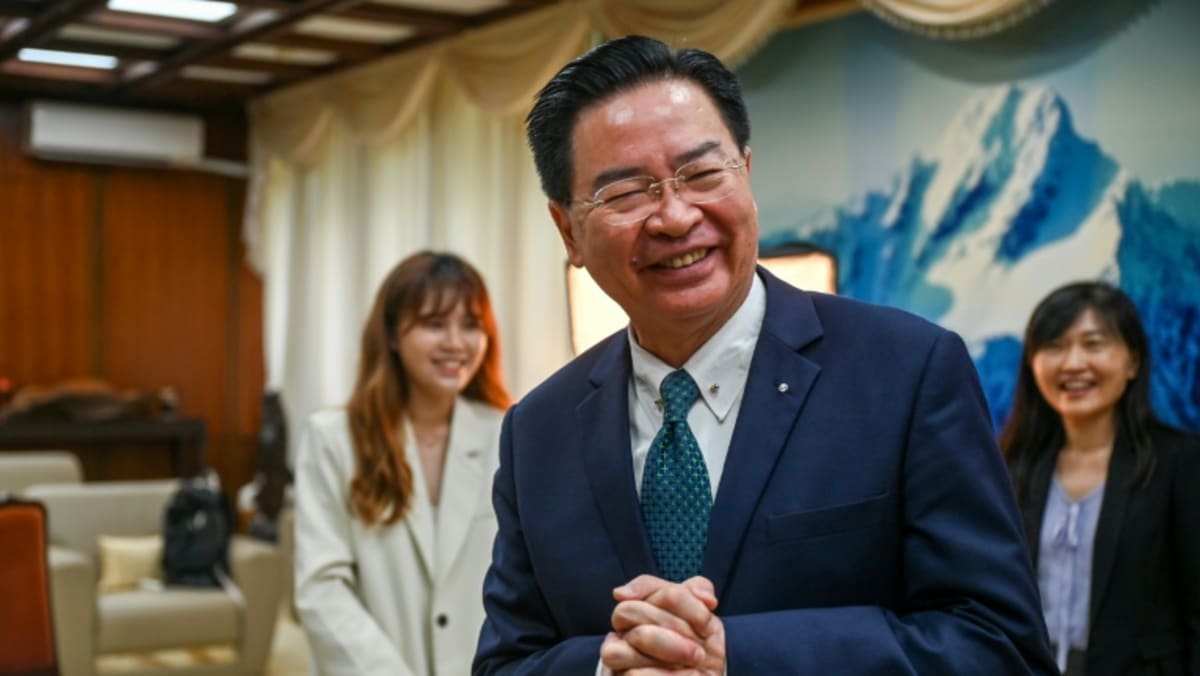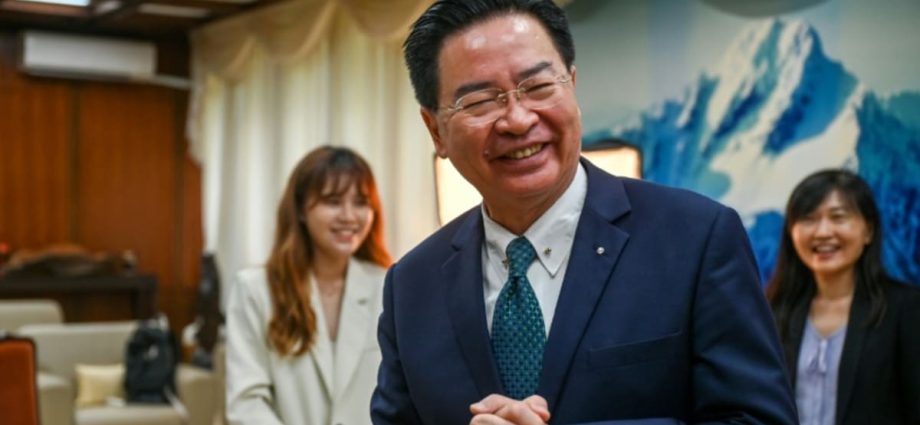
As Taiwan gears up for January’s presidential election, Wu said the island was seeing a “more sophisticated” disinformation campaign to influence its 23 million-strong population.
“What China has been doing in engaging in cognitive warfare is to change the thinking of the critical minority here in Taiwan – to vote the other way so they can change the outcome of the election,” he added.
Wu is part of the Democratic Progressive Party (DPP), perceived as more pro-United States than the opposition Kuomintang Party.
The DPP administration is headed by President Tsai Ing-wen, who is in her final term in office and is hated by the Chinese leadership for her refusal to accept that Taiwan belongs to China.
“TAIWAN MIGHT BE NEXT”
Relations between Taiwan and China have plunged since Tsai’s election in 2016, with Beijing refusing to engage with Taipei.
Global attention on cross-strait tensions has spiked in the past year, which Wu attributes to Russia’s invasion of Ukraine.
“(The international community) look around … and then realise Taiwan might be the next one. They look at the Chinese track record of threatening Taiwan,” he said, pointing to a much-cited timeline of 2027 as a possibility for a Chinese invasion.
US officials have said they believe China would not have the military capability to undertake such an operation before then.
Taiwan is also watching China’s internal political situation “with caution” after the sudden removal of Qin Gang as foreign minister. Beijing has offered no explanation for his dismissal, and he has not been seen in public for more than a month.
“This is an environment that we need to be very careful in doing our observations. We do not want to become a scapegoat of Chinese troubles,” Wu said.
Taiwan has seen near-daily incursions of Chinese warplanes around its air defence zone and patrolling naval vessels since last August, when then-US House speaker Nancy Pelosi visited Taipei in a trip that enraged Beijing.
The frequency is “putting Taiwan in a situation where our defence depth is compressed, where our response time is shortened, where the military threat is more serious than ever”, Wu said.
Moral support and military assistance, such as the US$345 million aid package announced by the Pentagon at the weekend, is appreciated.
However, Taiwan does not “count on the US to fight a war” for them.
“We understand that this is our place, this is our country, this is our sovereignty and it is our democratic way of life … Therefore, defending Taiwan is our own responsibility,” Wu said.
“We will not give it up for anything at all.”

